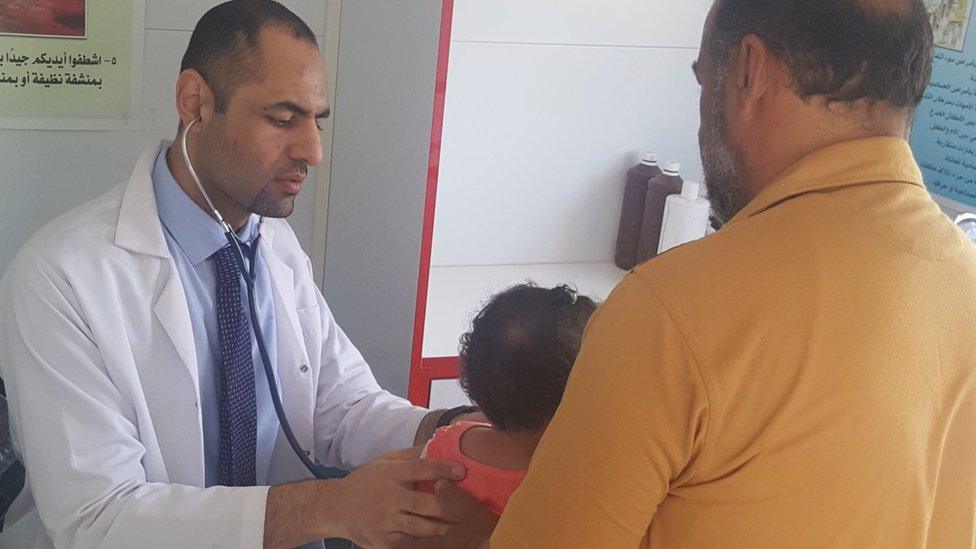Cardiff doctor helps Iraqis hit by Basra water crisis illness
- Published
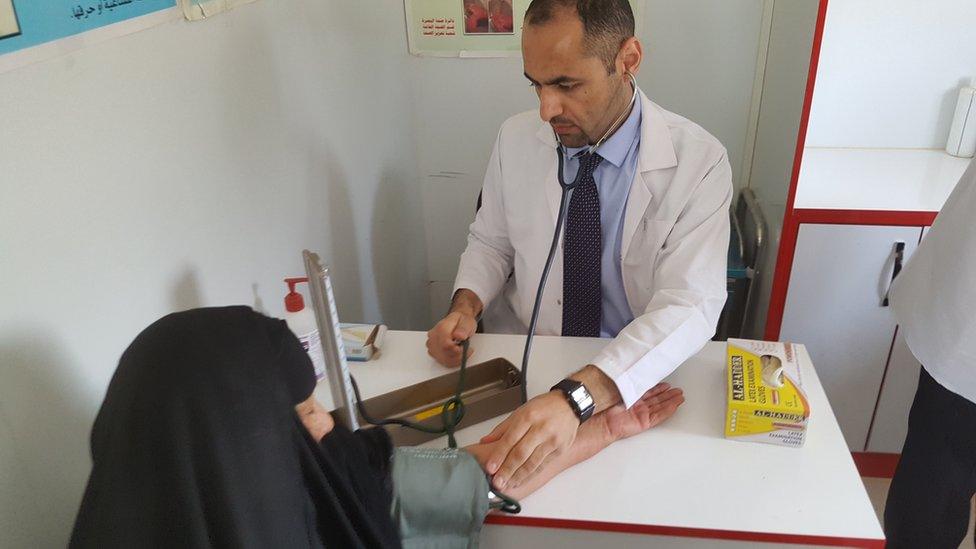
Dr Laith Al-Rubaiy has returned to Basra to assess patients who have become ill through water pollution
An Iraqi doctor who settled in Cardiff is to visit his home country to help those caught up in a water crisis.
For months residents in Basra have been protesting over a lack of clean water, interrupted electricity supply, rising unemployment and corruption.
Dr Laith Al-Rubaiy said there were 17,000 hospital cases of diarrhoeal illness, up from 1,500 two months ago.
He already runs a mobile clinic there and also hopes to treat people via Skype when he is back in Wales.
"I grew up in Iraq and will always be indebted to the people there," said the consultant gastroenterologist, who also works with the Amar Foundation, external - a charity working in the Middle East region.
"Basra used to be called the Venice of the Middle East in the 60s and 70s. Unfortunately, when I look at the situation now, all the rivers are full of sewage and pollution.
"The water is not even suitable for animals. What is so shocking is that Basra is oil rich. It was neglected during Saddam's regime and the subsequent government since 2003."
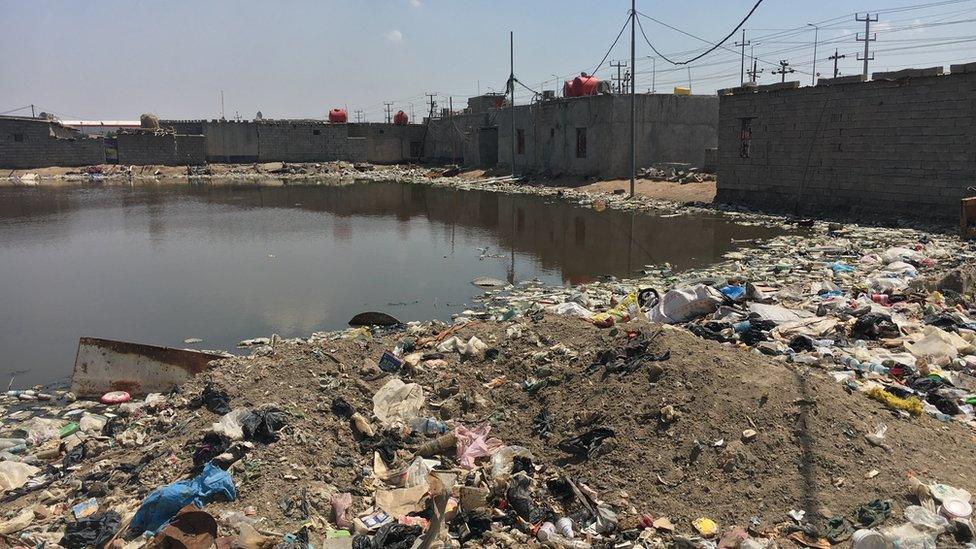
The reservoirs and rivers in Basra, once described as the Venice of the Middle East, are full of sewage and litter
Dr Al-Rubaiy's life in Cardiff with his wife, seven-year-old son and daughter, four, could not be more different to his time spent studying in Basra during the invasion by US and allied forces.
"It was traumatic. It was in the middle of our final medical exams. There was a lack of electricity and clean water," he explained.
He left Iraq in 2005 to study further in the United States, before moving to the UK permanently in 2006.
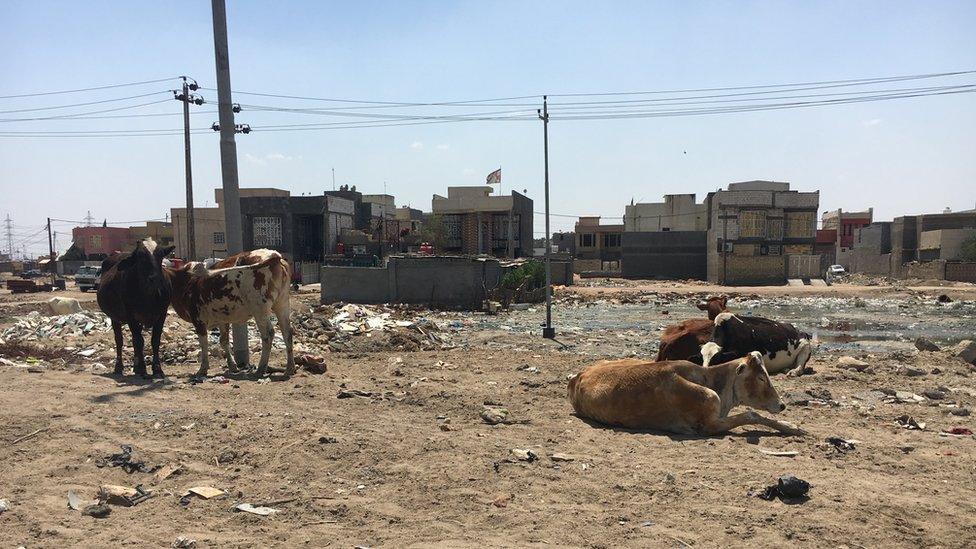
The water has become so polluted that not even animals can safely consume it, said Dr Al-Rubaiy
He is now a senior clinical lecturer at Swansea University School of Medicine, and works as a consultant at St Mark's hospital in Harrow, Greater London.
But he has never forgotten his homeland.
"Basra is home for me so I go there to see my old friends," he said.
"I have mixed feelings of happiness but also sadness seeing the situation when I do go over there. People are suffering."
Dr Al-Rubaiy is planning his next trip to Iraq and later hopes to raise money to buy equipment for the local healthcare staff.
He added: "This time we will focus more on raising awareness of water hygiene and healthy sanitary waste disposal."
- Published30 June 2017
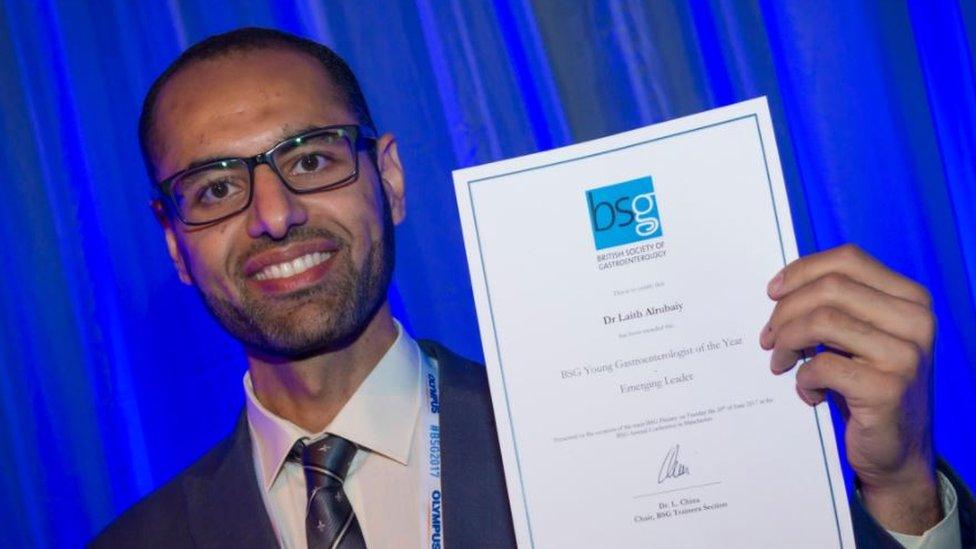
- Published16 April 2018
